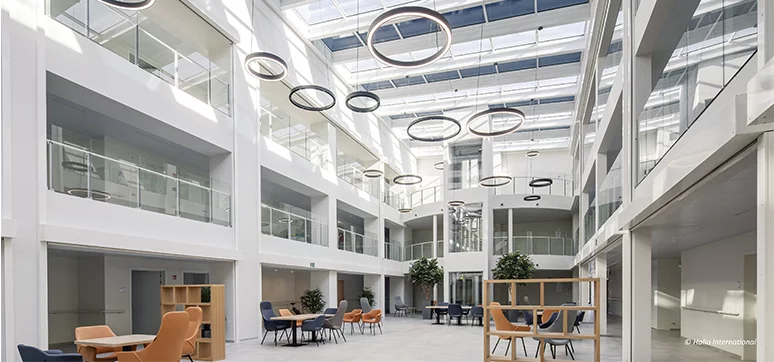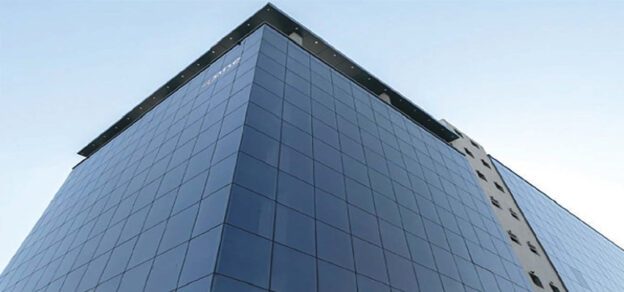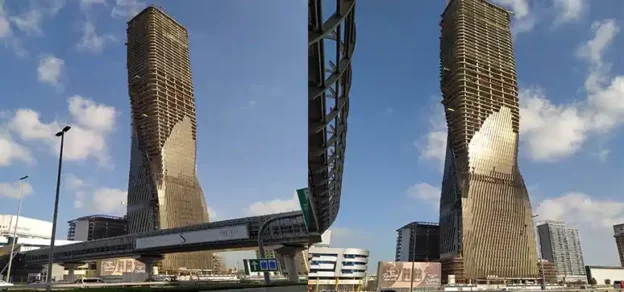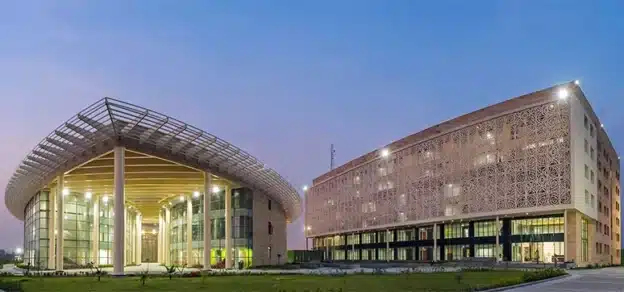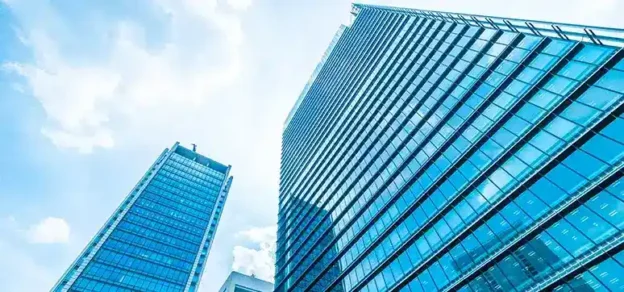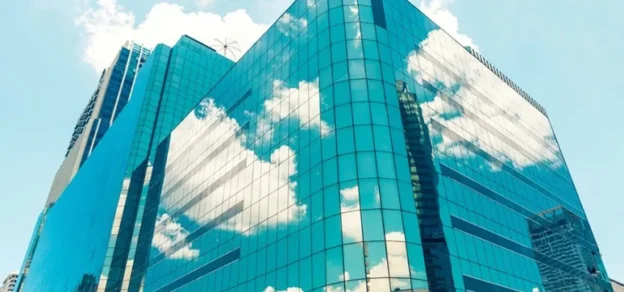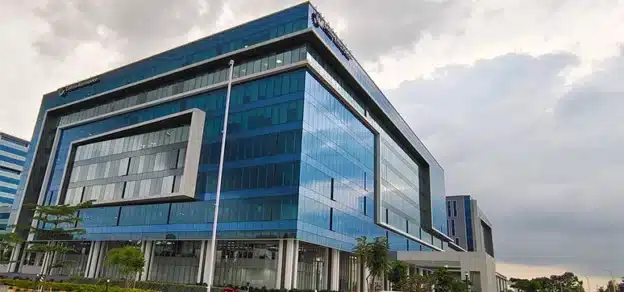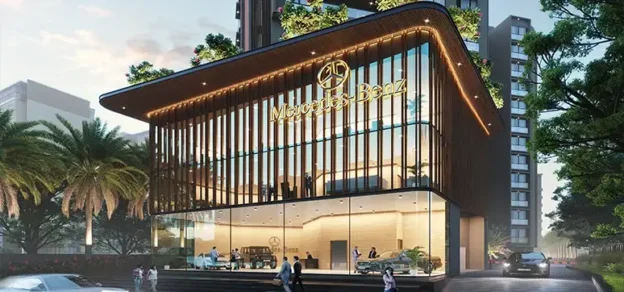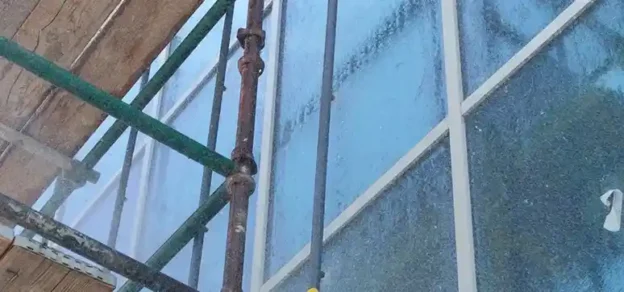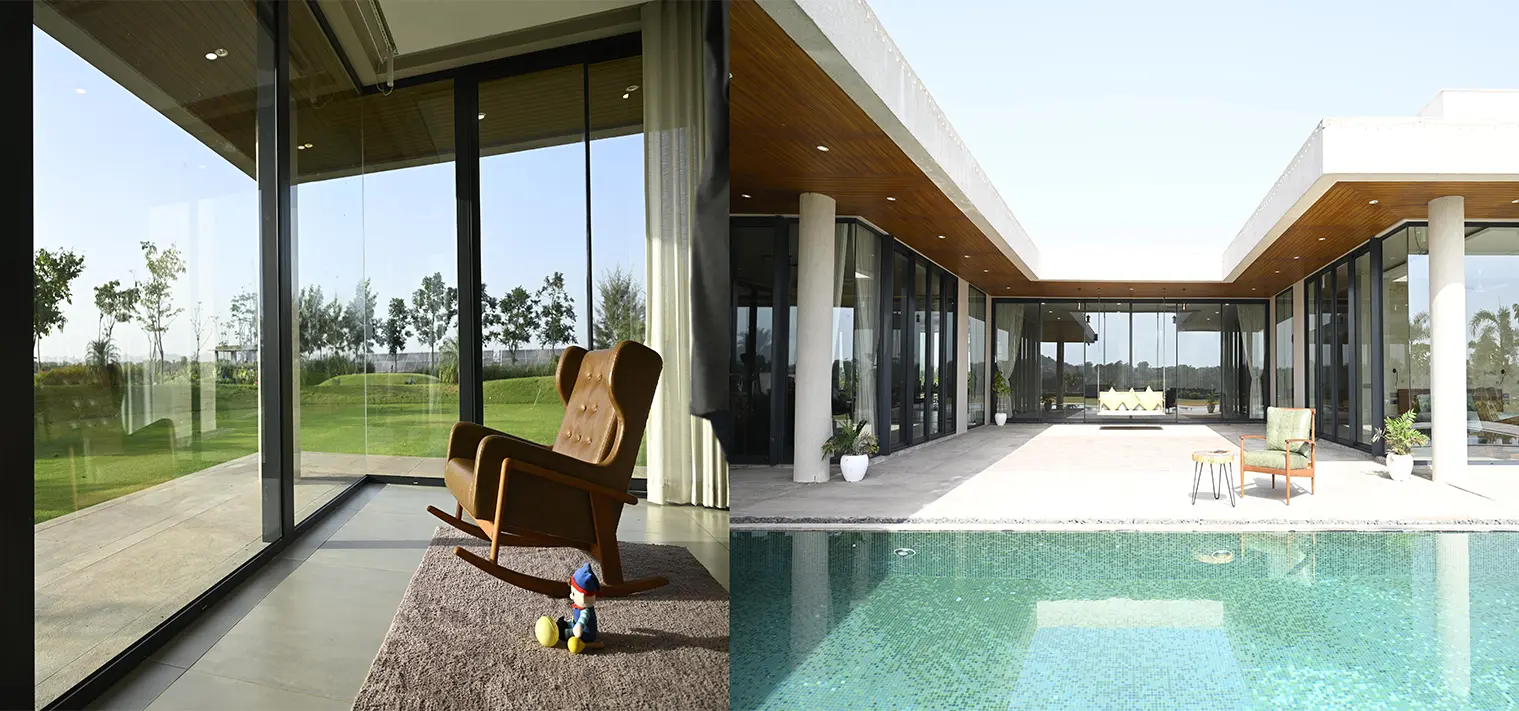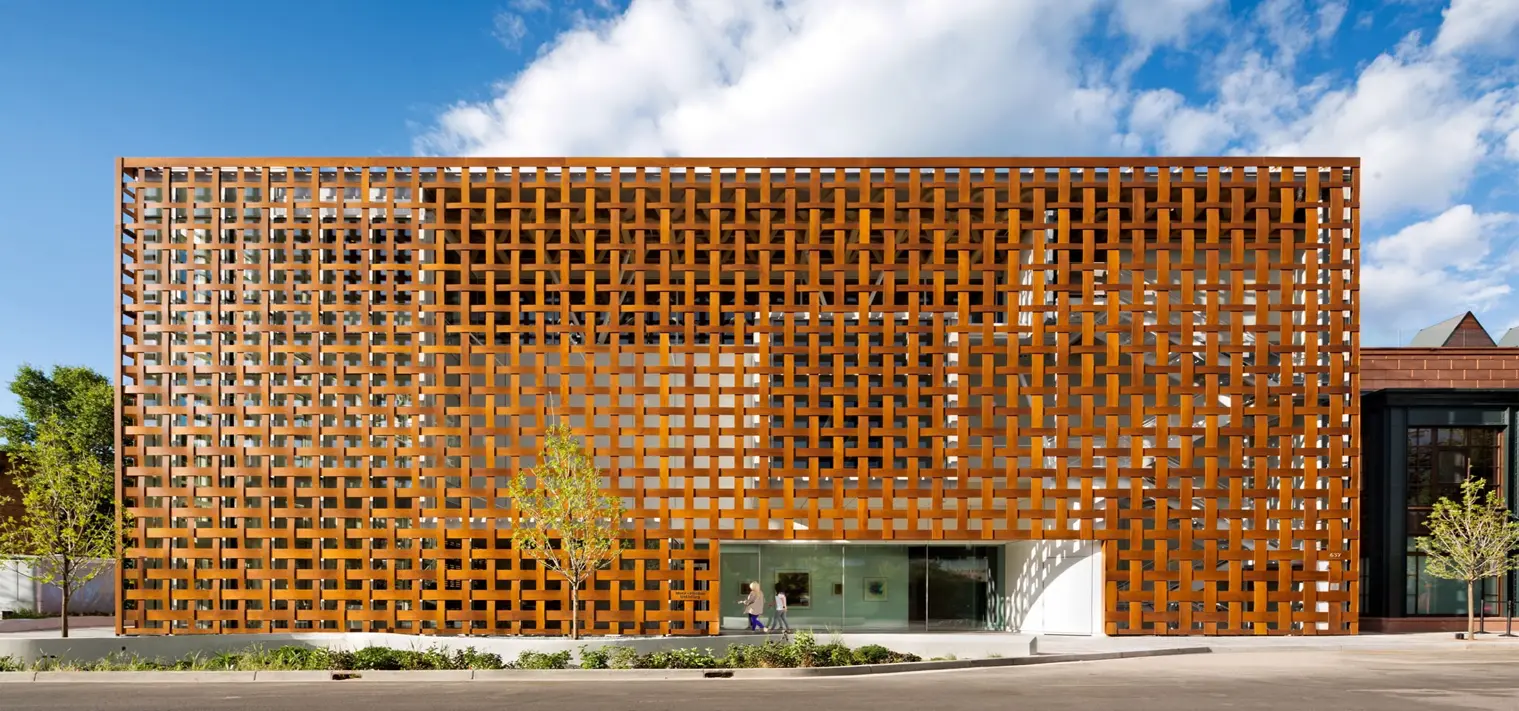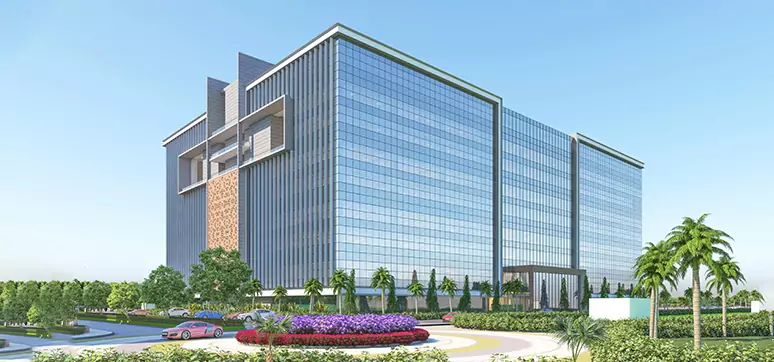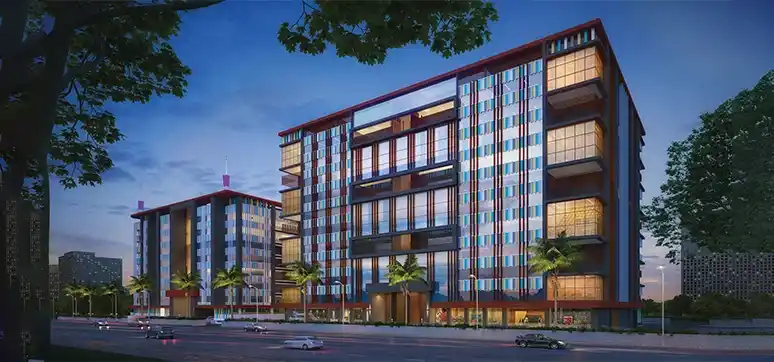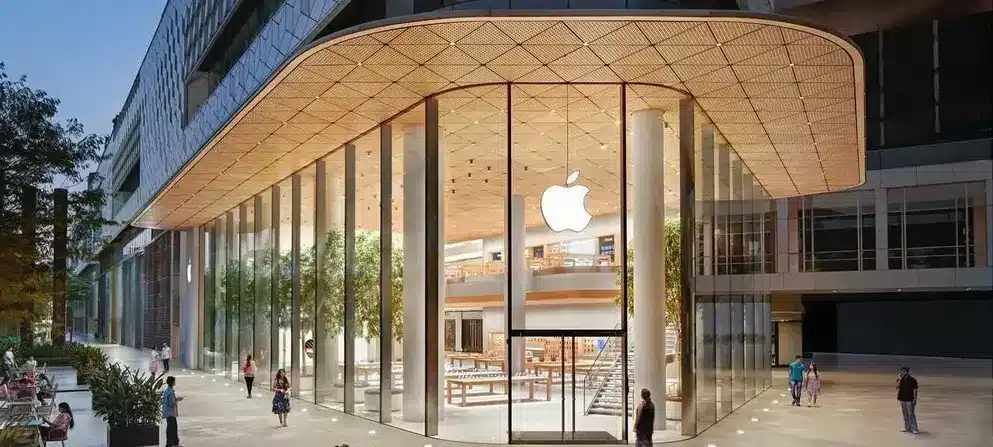Avondzon Residential Care Centre, Flanders, Belgium
Avondzon, a renowned Belgian geriatric care facility located at Erpe-Mere has opted for dynamic Halio insulating glass units. A total of 132 windows make up a glass roof that, on 304 m2, connects the old wing, built in 1978, with the new one completed in 2019. 73 modern, spacious rooms open to a light flooded common area under the glazing. In bright sunlight, the Halio glass units – either separately or in groups – can be completely darkened in less than three minutes. In its dark state, Halio blocks 95% of incoming energy and 98% of light. The system also allows daylight to be controlled in a patient-friendly and precise manner within a light-flooded glass architecture. In addition, it lowers the energy costs for lighting and heating.
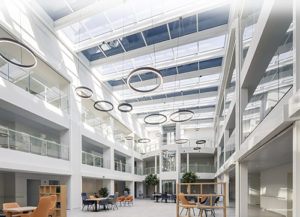
Especially in elder patients with reduced mobility, intelligent daylight management can influence health, safety and well-being. Changes in the aging eye such as cloudiness and yellowing of the lens, reduce the incidence of light on the retina, therefore, probably increases the propensity to listlessness and despondencies. Blue light is filtered out and can no longer affect cortisol levels as it was young. In addition, the glare sensitivity increases. The dynamic Halio glass with a smoother tint darkens slightly. At the same time, it ensures the highest possible daylight incidence at all times, but it removes the unpleasant dazzling effect of sunlight, bringing a perfect thermal comfort. With a colour rendering index of 97%, the electrochromic glass used in the project is completely neutral in colour and, when toned, shows neither blue cast nor raster or erratic gradients.

In health facilities there is another application for dynamic glass: nearly-privacy even without blackout curtains, which always bring with it the risk of germ attachments. Halio Black blocks more than 99.9% of incoming light and 96% of incoming energy and can be used for both interior and partial façade partitioning. Untinted, it has a transmittance of 51%. The Halio system is complemented by a cloud-based control, which can be integrated into any common building automation system. Halio Cloud adapts tinting to individual needs thanks to special algorithms, with individual parameters such as building use, location and orientation of the façades and weather conditions being included in the calculations. End user control is via intuitive and wirelessly networked interfaces.
Gare Maritime, Brussels, Belgium
Built at the beginning of the 20th century, the «Tour et Taxis» site was one of the most important freight handling centres in Europe with warehouses, offices, customs buildings, the largest freight station in Europe at the time and a direct connection to the Brussels-Scheldt maritime canal until the 1980s. Belgian real estate developer Extensa has set itself the ambitious task of preserving the authentic character of these gems of Belgian industrial architecture, while simultaneously transposing them to the modern age. The department stores of the former Gare Maritime goods station have been completely rebuilt under the leadership of Neutelings Riedijk Architekten in mid-2019.
The seven interconnected halls cover an area of more than 40,000 sq. metres and are up to 23 metres in height. Fortunately, it has been possible to retain the well-preserved, historic supporting structure made of metal cross beams. In conjunction with the use of a great deal of wood, brick floors and glass, a modern and light-filled district has been created beneath it, where people work, go shopping, eat and spend their free time. “Barcelona’s climate in Brussels” – is how Extensa describes the roofed town, the central “Rambla” of which is an impressive 270 metres in length.
The Glass System For Boosting Comfort And Sustainability
In order to prevent overheating and to minimise glare during periods of intense sunshine, Extensa opted to install a total of 1,633 sq. metres of sensor-controlled dimmable Halio panels. A total of 600 triple-glazed insulating glass units with low-E coating embedded in narrow steel frames will be installed. Mechanical solar control was dismissed at the very start of the project, as we didn’t want to change the overall impression of this wonderful, century-old façade through the addition of more elements, explains Extensa COO Peter de Durpel, “its ease of use also won us over.“ A third, but hardly insignificant reason for opting for Halio was the positive contribution it made towards Extensa’s sustainability strategy. The project developer is pursuing a circular economic concept that has unnecessary material avoidance and a positive carbon footprint as its primary targets.
The Gare Maritime will become a modern Smart City with an irresistible, historical charm. The Halio glass system contributes towards a pleasant and vibrant daylight atmosphere while keeping the energy consumption levels for solar control and air conditioning technology to a minimum.
Benefits to the Projects
• The glass used gives a neutral colour (not bluish or yellowish) that perfectly matches conventional glazing
• It gives a smooth, very swift transition from light to dark in under three minutes that can be halted at any stage, overriding predefined settings
• It provides a smart, flexible, networked system
• The static glass with an exclusive coating, ensures façade uniformity when used alongside dynamic Halio smart-tinting glass
